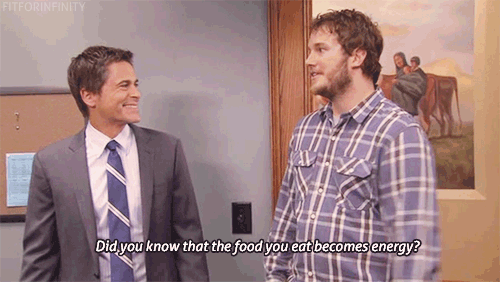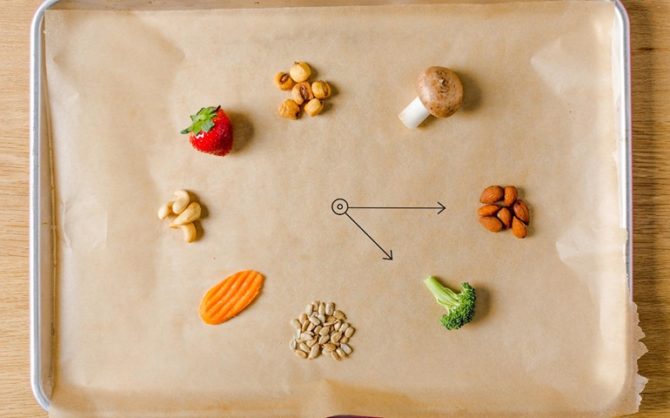We all have that friend who seems to eat anything and everything and doesn’t go to the gym every day, but still manages to look like they’ve been logging miles on the treadmill. Meanwhile, we wonder why we weren’t blessed with the freaky-fast metabolism as we pick at our salads.
We all want a faster metabolism, and the world is full of ideas on how to get one. Unfortunately, there are a lot of misconceptions floating around. Before starting new fad diets or habits in hopes of increasing your metabolism, take a look at some of these ideas that are nothing but myths.
1. Metabolism is purely about breaking things down.

Gif courtesy of giphy.com
Most of us think that metabolism is process which breaks down what we intake, which is true, but it’s not the complete picture. Metabolism is a balance between breaking substances down and storing energy from those substances as well.
2. Thinner people have faster metabolisms.

Gif courtesy of giphy.com
Referring back to the friend who seems to stay in shape no matter what he or she eats, this is one of the main reasons why most people want a super fast metabolism in the first place.
Even though we know that smaller animals have faster metabolisms than larger ones, thinner people don’t always have faster metabolisms than others and vice versa. What counts is the muscle mass. Muscle burns a lot more calories than fat, which is why simply dieting without working out might not be efficient for weight loss.
3. Metabolism is solely genetic and unchangeable.

Gif courtesy of giphy.com
Whether you have a faster or slower metabolism is affected by genetics, but it doesn’t mean you can’t strive for a faster metabolism. Gaining more muscle mass, drinking more cold water, sleeping more and eating more protein can help increase your metabolism, but only to certain degrees.
4. Eating multiple smaller meals a day can increase your metabolism.

Photo courtesy of ziploc.com
It’s a well-known but incorrect assumption that eating six small meals a day can help you lose weight. It might help with portion control and keeping that growling stomach quiet, but it’s more about the quality of foods you eat rather than how many meals you have each day. Eating 3 meals of quality food vs. 6 small meals of quality food really should have no difference.
5. Slower metabolism at night turns late night foods into fat.

Gif courtesy of giphy.com
Even though this is a popular thought, eating late night foods doesn’t automatically pile up into pure fat. Calories eaten at 12 p.m. are no different than calories eaten at 12 a.m. Unless you worked it off, they are going to stay put.
Again, the difference is in the quality of food. Eating a cheeseburger at midnight is going to be different than eating some greek yogurt. So don’t starve yourself until the morning if you’re hungry. Instead, eat something light, healthy and protein-rich. It won’t turn into fat.


